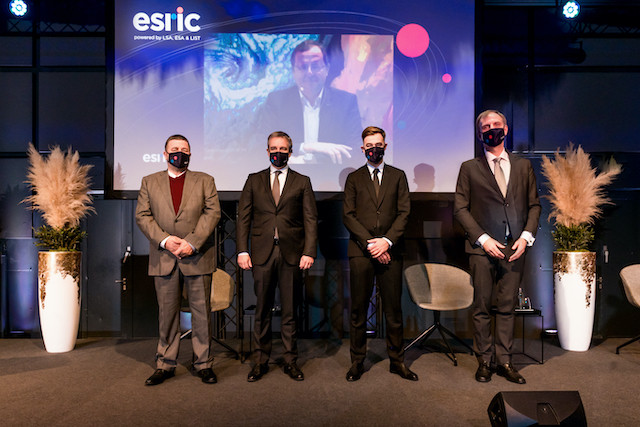The Luxembourg government and the Luxembourg Institute of Science and Technology in August 2019 first announced the €20m centre--also known as ESRIC--that only last week appointed its first director, Mathias Link.
ESA was always lined up as a partner for the project, but on 18 November signed an implementation agreement with the ministry of economy, List and the Luxembourg Space Agency.
ESRIC “aims to become an internationally recognised centre of expertise for scientific, technical, business and economic aspects related to the use of space resources for human and robotic exploration, as well as for a future in-space economy,” an official statement said.
The centre’s activities will focus on space resources research and development, also supporting commercial initiatives and startups. It will host a business incubator and also work on exchange between space and non-space industries.
ESA and the government are injecting €8m into the project over the first three years, with List contributing €3m. Luxembourg’s National Research Fund (FNR) will also fund projects at ESRIC.
Link will oversee the development of the centre, which is expected to become fully operational in the next three years, while continuing in his role as director of international affairs and SpaceResources.lu at the Luxembourg Space Agency.
The government launched the SpaceResources.lu initiative in 2016 to attract space companies and investors, and in 2017 became the first country in Europe to adopt a regulatory framework for the space mining industry.
ESRIC is the latest in a series of space projects supported by the government. Luxembourg earlier this month became one of eight founding signatories of the Artemis Accords. The accords are part of what has been dubbed the moon-to-Mars mission, which will see a global coalition involved in achieving a sustainable presence on the moon.
Luxembourg has signed memoranda of understanding with nearly a dozen countries, including the US, Japan and China, as well as several space businesses that have established a presence in the country.
